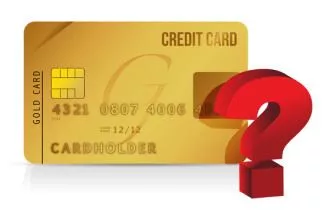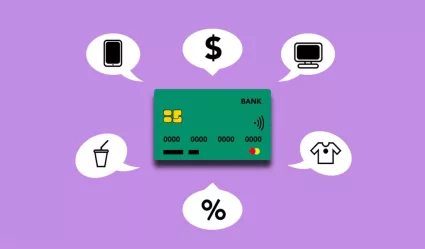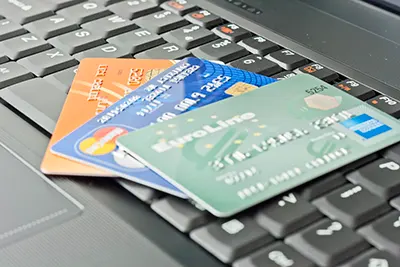
New to the payment processing world? There is a lot to learn if you hope to get the best payment processing rates for your organization. It can be a complex industry to break into and lots of new terms will be used by industry professionals when introducing their services.
We have compiled this list of 20 of the most commonly used definitions for nonprofits new to payment processing and the merchant services industry. While this is by no means an exhaustive list, it will provide some direction for getting started in the merchant services industry.
- Acquirer – Merchant Bank: An acquiring bank is a bank or financial institution that processes credit or debit card payments on behalf of a merchant.
- Address Verification Service (AVS) – This is a service used to verify a cardholder’s credit card billing address. It is an optional service, but recommend for best security practices. If someone is attempting to use a stolen credit card, AVS can detect this for you. If the address provided at the time of a sale doesn’t match the credit card billing address on file, the transaction can still be approved at the merchant’s discretion.
- Authentication – A practice or procedure to verify the identity of an individual or organization. There are varying levels of authentication for accepting payments. Examples include checking a customer’s driver’s license when accepting payment at retail or validating a customer login and password at a merchant Web site. In respect to payment gateway account authorization, Authorize.Net employs a number of electronic practices and procedures to verify that merchants accessing the payment gateway are authorized to do so.
- Basis Point (BP) – Equivalent to .01 percent, or one-hundredth of one percent, and is used as a measurement of fee rates. Rate changes are often expressed in basis points instead of hundredth percents, e.g., a fee rate increase of 1.95 percent to 2.0 percent is expressed as an increase of 5 basis points.
- Batch – A batch is a collection of captured credit and debit card transactions submitted for settlement. Usually, transactions are ‘batched’ or settled each evening at a given time. This means they are submitted so that you will receive the funds in your bank account. It is important to find out if your merchant bank requires you to close the batch manually and/or if it’s closed automatically at the end of the day. With some services (such as Authorize.net) you can choose your batch settlement hour.
- Credit Card Networks – Visa, MasterCard, American Express, and Discover are the four major credit card networks. They handle the worldwide processing of credit and debit card transactions, and set the associated terms and fees for those transactions.
- Card Security Codes – These are three-digit numbers that are laser-printed on the back of your credit or debit card’s signature panel. They are associated with either the complete account number or the last four digits of the account number – (CVC is MasterCard’s naming convention for Card Security Codes. CVV2 is Visa’s naming convention for Card Security Codes).
- Chargeback – A dispute of a transaction (by the cardholder) that is returned to the Acquirer. This may occur in the case of a stolen credit card or when the cardholder refuses to pay because they did not receive the service or merchandise they desired. In the case of a successful chargeback, a merchant will lose the funds in question and be charged a chargeback fee. If a chargeback occurs on your account, you will have the opportunity to respond and remedy the situation before losing the disputed funds.
- Discount Rate – The dues, fees, assessments, and network charges merchants pay to accept credit and debit cards. The discount rate charge is the lowest for transactions that carry the least amount of risk (which are swiped transactions), and higher for transactions that carry more risk of fraud and chargebacks.
- Interchange Fee – This refers to the costs charged by Visa and MasterCard to process their credit and debit cards. Interchange fees are charged to all merchants who accept credit cards and must be paid by the merchant services provider immediately upon accepting a credit or debit card transaction.
- Interchange Plus Pricing – This is the pricing model that we use at DoJiggy Merchant Services. Interchange plus pricing is widely considered to be the fairest and transparent pricing structure in the payments industry. Interchange Plus pricing works by adding a small margin on top of Visa and MasterCard’s interchange fees. Interchange Plus models typically charge a percentage fee and a per-transaction fee above interchange fees. Read more on Interchange Plus pricing.
- Merchant – Any business or organization that has been approved to accept credit cards. (That’s you!)
- Merchant Agreement – A contract between a merchant (the business that has been approved to accept credit cards) and an acquirer that details their respective rights, responsibilities, and warranties. When you apply for a DoJiggy Merchant Services account, you can complete the merchant agreement online.
- Monthly Minimum – This is a fee that guarantees that you will be paying a minimum amount of processing fees each month. With DMS, you will be charged a minimum of $25 per month. This means that if your organization processes nothing in a given month, you will still be charged $25. If you process $100, you will be charged $25 (as your fees to process the $100 will be below the $25 threshold). But if you process $5,000, then you will be charged fees based only on this volume. Since these fees will exceed $25, you will not be charged the $25 Minimum discount fee.
- Payment Gateway – A payment gateway is used for eCommerce merchant accounts. It is similar to a POS terminal in that it allows your organization to get authorizations and charge credit cards. Transactions can happen via the payment gateway’s virtual terminal or directly on your fundraising website. We use Authorize.net as our payment gateway.
- PCI Compliance – The Payment Card Industry (PCI) Data Security Standard is a worldwide standard for payment card and consumer financial data protection. All merchants that accept credit cards are REQUIRED to be PCI compliant. Read more on PCI compliance standards.
- POS Terminal – POS stands for Point-of-Sale. A POS Terminal is a bankcard-processing device that communicates and transfers data via a phone line or internet connection. Credit card authorizations and transaction transmittals are transactions performed through the POS terminal.
- Recurring Transactions – A transaction where the cardholder gives permission to a merchant to place charges on the cardholder’s account regularly (i.e., monthly dues or memberships).
- Tiered Pricing – This is the most common type of pricing for merchant services accounts. While it is easy to understand, it is not generally the best pricing structure for merchants. Tiered pricing models generally include qualified, mid-qualified (or partially qualified), and non-qualified rates. While the qualified rates are quite low, most credit card transactions to not fall within this category (for various reasons). Mid-qualified and Non-qualified rates are more commonly charged and can run quite high.
- Virtual Terminal – A virtual terminal works like a POS terminal, allowing merchants to get authorizations and charge credit cards. But rather than a physical terminal, a virtual terminal is an online interface where you can go and process credit cards.
See also our Frequently Asked Questions on merchant accounts.



